There is hope for the future through the impact of conservation activities and the significant role volunteers play, including monitoring species and collecting data. The powerful role of citizen science here should not be overlooked. Citizen science allows anyone to participate and contribute while engaging with and learning about science. It can foster deep and meaningful connections with nature, as well as facilitate informed action.
A long-term citizen science platform for identifying and learning about biodiversity
iSpot: Past present and future

iSpot is The Open University’s award-winning citizen science platform for biodiversity and helps the public and scientists get involved in monitoring species worldwide. Celebrating 12 years of science learning and research it builds species identification skills and contributes to biological data recording in the UK and globally. iSpot is a network of tens of thousands of nature observers, both experts and novices, who have posted over 800,000 observations, with 1.6 million images, identifying over 30,000 species. Some of the images supplied by iSpot users are displayed on this page.
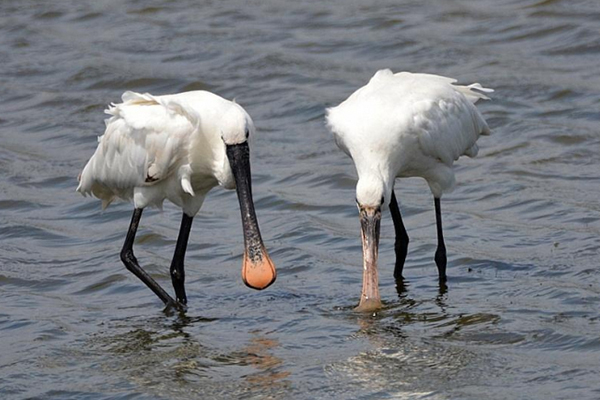
The image above is of spoonbills (Platalea leucorodia), taken by iSpot user Chris Bollen.
Visit the iSpot observation.
iSpot supports interest in nature: encouraging anyone to get involved recording and identifying wildlife while learning and building skills. Join the community and:
- Explore: browse the thousands of species spotted so far,
- Identify and record: add your observation; identify them, get help with identifications.
- Contribute: help identify observations, comment and join in discussions; a reputation system motivates and rewards, awarding badges for contributions.
- Personalise and Learn: participate in citizen science challenges; create, develop and filter your own learning journey through projects, quizzes, online ID keys and courses.
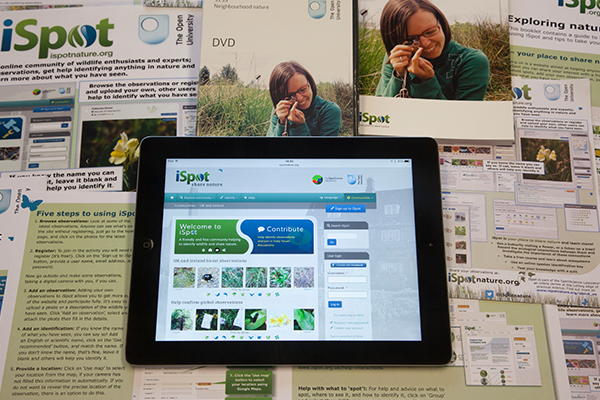
As a curator of biodiversity species data, the impact of iSpot is extensive; from being essential to the wellbeing of many as a connection with nature throughout Covid-19 to contributing to education and national policy-related actions e.g UK State of Nature Reports, national pollinator and pollination monitoring frameworks and other strategies. It’s role ‘reconnecting people and nature’ has been noted in a UK Government Environment White Paper and a parliamentary paper on Environmental Citizen Science recognises iSpot as a route to engaging audiences with science. iSpot collaborates with the National Biodiversity Network (NBN) and contributes to the NBN Atlas, the UK’s largest collection of freely available biodiversity data. Developed to help bridge skills gaps while supporting interest in ecology, iSpot contributes to teaching and learning across hundrends of educational institutions and groups including undergraduate and postgraduate students in OU courses; and engages the public through face to face and online activities as well through OU/BBC co-productions (see links below).
Moving forward iSpot is co-designing services for biodiversity and environmental citizen observations through a European collaboration, exploring human computer collaborations in pollinator citizen science as well as the role of touch, using smart devices in experiencing nature, enhancing biodiversity information enabling volunteers to record nature where it matters, and leading innovation in citizen science and artificial intelligence.
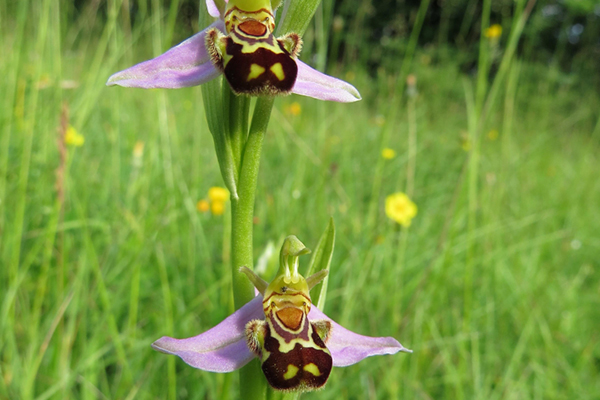
The image above is of bee orchid (Ophrys apifera), taken by iSpot user Ben Rigsby.
Visit the iSpot observation.
Do you want to get involved now?
iSpot supporting biodiversity and ecosystems
In June 2021 (World Environment Day) #GenerationRestoration was launched: a ten year global challenge for the recovery of ecosystems that have been degraded or destroyed, and conserve ecosystems that are still intact. How can we Reimagine. Recreate. Restore ecosystems?
We want you to help record and identify biodiversity as part of iSpot’s response and demonstrating iSpot’s support, this OpenLearn space brings together a range of related articles, courses and resources to help. Dive in to see highlights, achievements and significant milestones from over the years; plans and new developments as we chart the next phase for iSpot as a tool for biological recording, building species ID skills and learning. Look out for opportunities to contribute to the challenge of reducing ecosystem degradation and biodiversity loss.
Register on iSpot and join our iSpot12for12 activities
June 2021 starts twelve months of activity acknowledging and celebrating the 12th anniversary of the public launch of iSpot on June 27, 2009. We are marking this significant milestone iSpot12for12, acknowledging and celebrating 12 years of citizen science and engagement about biodiversity; contributing to building species identification skills, biological recording, data gathering and research. Go to #iSpot12for12 for more.
- #iSpot12for12 biodiversity citizen science challenges: We can all do our bit for biodiversity: Why not start now? In June, Insect Week encourages us to celebrate insects and the important role they play; discovering more about the small and wonderful creatures in our gardens, parks, and green spaces. iSpot can help you record, identify and learn more, see how here: Post all the observations of insects you can find and help us put a spotlight on insects celebrating the #LittleThingsThatRunTheWorld.
- Unique / interesting / memorable observations: one of iSpot’s most memorable posts was the Euonymus leaf notcher in October 2009. What are yours? Go to iSpot@12 highlights to find out more.
- Collating and sharing iSpot stories: Has iSpot helped you? We want to gather feedback and will be inviting volunteers to write their own stories to share. See more here.
For help with how to use iSpot download an iSpot user guide .
- World Environment Day: Is June 5 annually, but 2021's spotlight on ecosystems is for more than just the day launching the United Nations Decade on Ecosystems Restoration 2021-2030. Recording biodiversity is important and last year the OU held an #OUAskTheExpert session about "Making time for nature" which also fits in well this this year's theme #GenerationRestoration. Watch for yourself: https://youtu.be/6T3sd1F35n0 and share with us on iSpot how you can help restore! http://bit.ly/iSpot-WED-EcosystemRestoration.
- Interested in learning more about citizen science and biodiversity? Already a Citizen Scientist, would you like to have your skills and contributions recognised? The course Citizen Science and Global Biodiversity may be for you! It deals with the importance of biodiversity – the variety of life on earth – and explores how anyone can contribute to and be involved in identifying and recording wildlife and nature, as a citizen scientist.
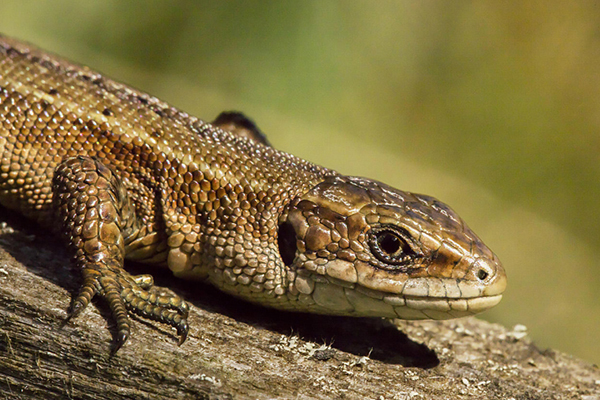
The image above is of a common lizard (Zootoca vivipara), taken by iSpot user Bill Welch.
Visit the iSpot observation.
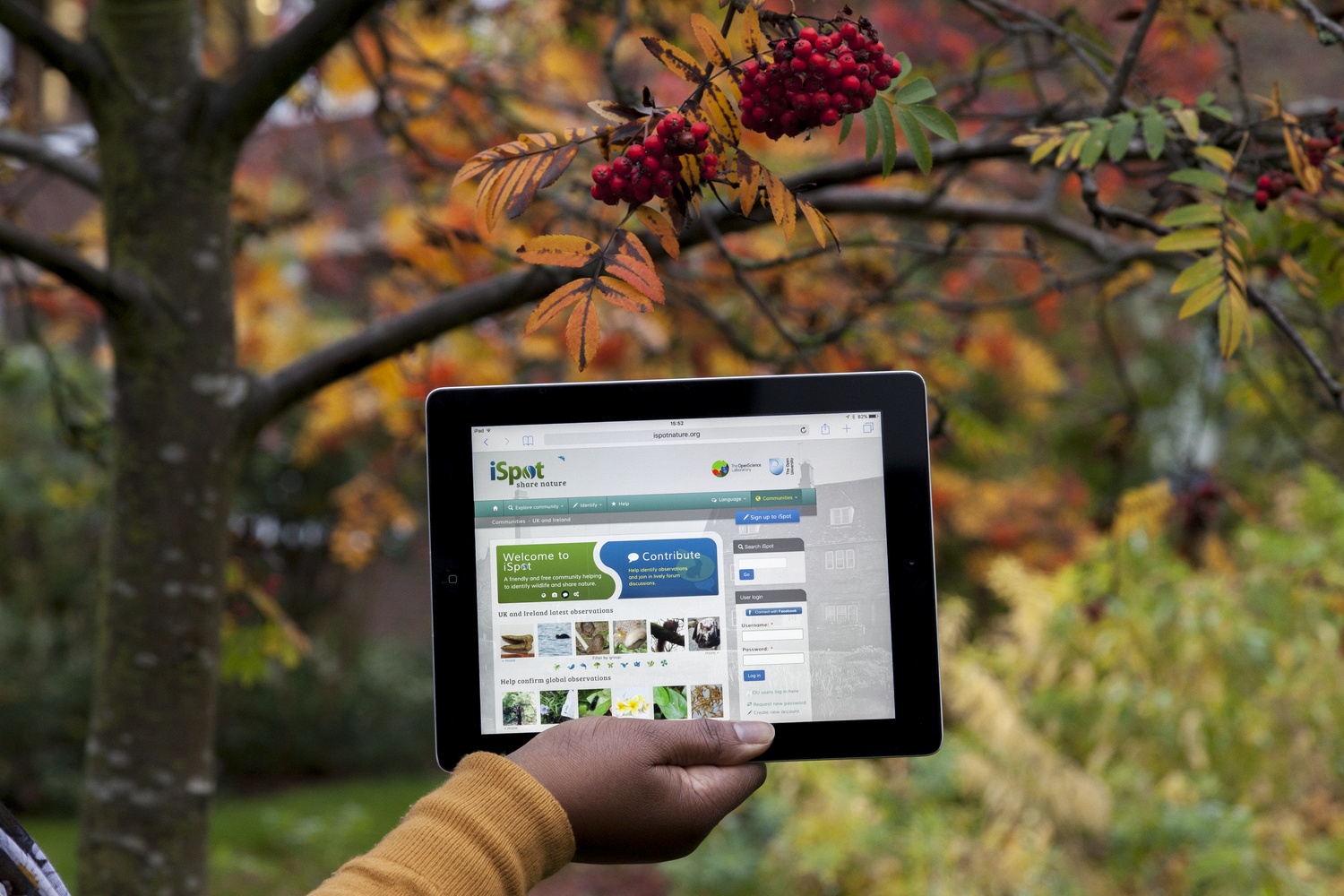



Rate and Review
Rate this article
Review this article
Log into OpenLearn to leave reviews and join in the conversation.
Article reviews